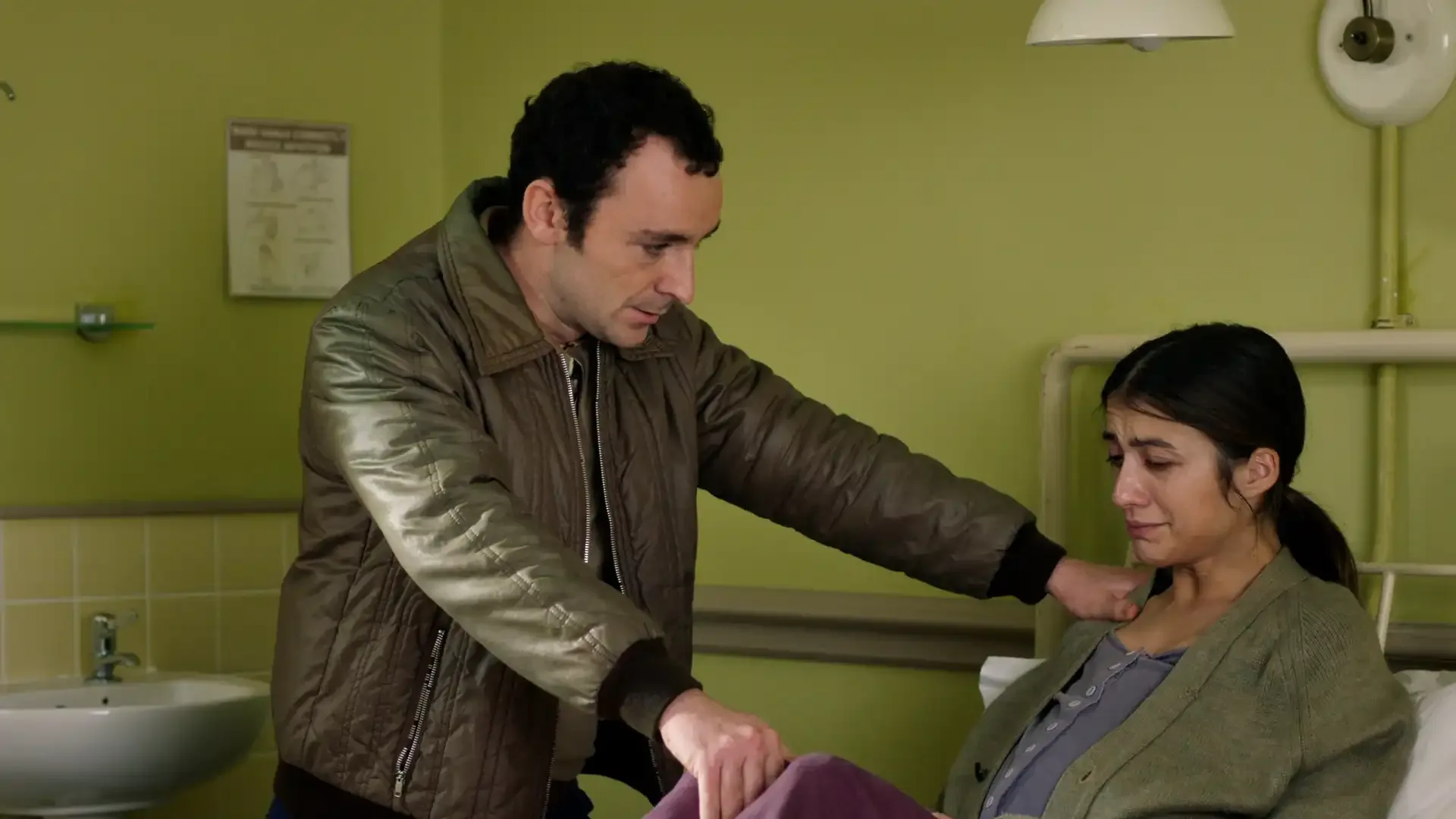Although this season of Call the Midwife is set in 1970, we continue to see parallels between midwifery practice then and now. This week, we met Jacqui and Laurence Berridge, a young couple expecting their second baby.
At first glance, I did notice that Jacqui appeared tired, thin, and a little withdrawn, but I wondered if she could possibly be experiencing anemia or other illness during her pregnancy. Jacqui reported being tired and not sleeping well as likely contributing to her feeling cold that day (despite the warm temperature in the clinic) and her tiredness.
Sister Catherine was concerned about Jacqui’s baby measuring small and raised that concern with Shelagh. Shelagh had some additional information about the Berridges’ past, though – Jacqui and her husband Laurence were former heroin users.
Substance use disorder affects around 5% of the pregnant population, and when considering the large number of pregnant women that exist, is a significant public health concern. Heroin is an opiate, along with drugs like fentanyl, oxycodone, and hydrocodone.
According to the CDC, the number of women with opioid-related diagnoses at delivery increased by 131% between 2010 and 2017. Using opiates during pregnancy can lead to many complications, such as fetal growth restriction, preterm birth, stillbirth, neonatal abstinence syndrome, and maternal death.
It’s easy to see why Shelagh and Sister Catherine were concerned and planned to follow up with Jacqui at her home the next day.
While I can’t necessarily condone pulling down Jacqui’s sleeve to reveal the track marks in her arm from injecting heroin, I do feel like Shelagh and Sister Catherine handled the discovery of Jacqui’s heroin use very appropriately. They never shamed her for having an addiction. They were honest about their concerns over Jacqui’s and the baby’s health, and made recommendations for her care based on that, but continued to provide kind, supportive, and respectful care.
I’m not sure how much Jacqui knew about Laurence’s use of methadone to help keep him off of heroin, but Jacqui was immediately resistant to trying methadone during pregnancy. I do understand how it could be scary to use something that is experimental, as well as something that is still a narcotic medication.
Once she realized that her baby was just as affected by everything she used as she was, she wanted to stop “cold turkey.” While this approach can work for some people, especially when carefully monitored by medical professionals, the midwives tried to explain to Jacqui that she might be more successful, with less symptoms of withdrawal, if she used carefully monitored methadone treatment.
While actively withdrawing from heroin, Jacqui went into labor. Shelagh and Sister Catherine stayed by her side, constantly encouraging her and treating her like any other mother in their care. I can imagine that having steadfast, non-judgmental, caring midwives during that labor made a huge difference for Jacqui.
When we care for women with a history of substance use disorder, or even active use, it is so important to approach their care with the same dignity and kindness we would use with any patient. We want all women we care for to feel free to be open and honest with us so that we can take the best possible care of them and their babies. If we come at someone in a vulnerable place with a harsh attitude or judgment, we are only discouraging them from continuing to receive healthcare.
We learned something valuable from this week’s episode, though: all of the good intentions, kindness, and compassionate care cannot save someone. When Laurence confronted Jacqui about using heroin again postpartum, Jacqui convinced Laurence to use again with her.
Yes, it was horrible to watch. When Jacqui used the (very manipulative) phrases, “You wanted me to take it with you once … remember? And I did. Because I love you. And now I'm asking you, just, just, just take it with me.” I was horrified.
I know it was her addiction speaking. Jacqui wasn’t a terrible person. She was a sick person with active addiction, and addicts will do and say horrible things at times. However, this turned out to be the biggest mistake of their lives, one that would change the course of their children’s lives forever. Jacqui and Laurence overdosed together.
My heart ached for the Berridge family, as well as for Sister Catherine. As a new midwife, that first experience of doing “everything right” and still not being able to save someone is devastating. During her time caring for Jacqui, Sister Catherine also learned her estrangement from her parents. They didn’t approve of Laurence, forcing Jacqui to choose between her love and her family, and had never even met their granddaughter, Kerry.
This resonated deeply with Sister Catherine, who was experiencing a similar estrangement. Her family disapproved of her choice to join the religious order, creating a rift that weighed heavily on her. Seeing Jacqui’s situation, the missed opportunity for reconciliation, seemed to strengthen Sister Catherine’s own desire to reconnect with her family. I was so happy when she decided to send those letters home, and even more so when her sister responded.
Finally, the resolution of the complaint against Joyce provided a much-needed moment of relief. We could celebrate justice for Joyce, a competent and resilient midwife who had faced so much systemic prejudice during her time in England already.
This storyline served as a powerful reminder of the ongoing fight for equality and the importance of advocating for justice within the healthcare system, both on behalf of the patients and the staff.
